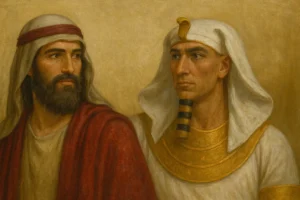[The past two months have taught us that years of good can quickly disappear when bad arises. This occurred in this week’s Parsha, Parshat Miketz, where Pharaoh has two dreams that only Joseph was able to interpret. It was Joseph, with Hashem’s help, who was able to advise Pharaoh to store extra during the years of surplus in order to be prepared for years of famine. ]
“Joseph advises Pharaoh how to deal with [his dream]: ‘Now Pharaoh must seek out a man with insight and wisdom and place him in charge of Egypt…,‘ Joseph explains, ‘in which grain will be stored for the upcoming years of famine.’
The stories of the Torah describe not only physical events that took place at a certain point in history, but also detail metaphysical and timeless tales occurring continuously within the human heart.
The wisdom of Joseph’s presentation to Pharaoh becomes strikingly clear when we reflect on the spiritual message behind the story.
[We] all experience cycles of plenty and of famine in our lives. There are times when things are going very well… Often during such times [of financial success, health…], we fail to invest time and energy to cultivate genuine emotional intimacy… we feel self-sufficient and don’t need anybody in our lives.
Yet when a time of famine arrives, when a crisis erupts (heaven forbid) … we suddenly feel the need to reach out beyond ourselves and connect with our loved ones and with G-d.
But we don’t know how to. When we do not nurture our relationships … during our years of plenty … we lack the tools we desperately need to survive the crisis.
This is the essence of Joseph’s wisdom: You must never detach the years of plenty from the years of famine. When you experience plenty, do not [forget] what is important in life. The priorities you cultivate during your ‘good times’ should be of the kind that will sustain you during your challenging times as well… why wait for the day you will have to say, ‘If I would have only realized?'”

